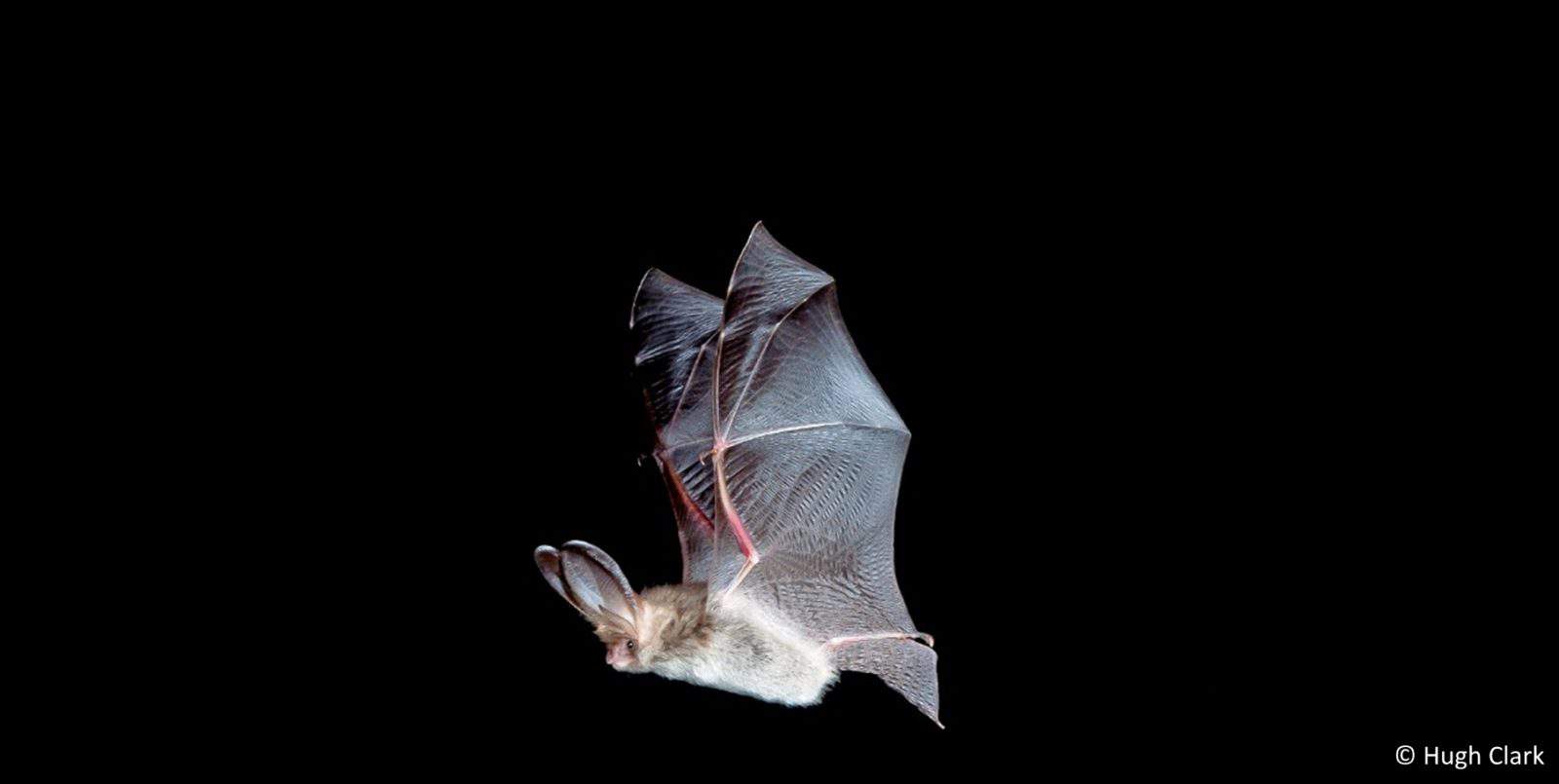This bat identification course covers the identification, ecology and surveying of British bat species, also awarding you with understanding of the importance of these species for ecology, conservation and recording.
Bats make up almost a quarter of the world’s mammals, with over 1400 species found on all continents, except Antarctica. In Britain we have 18 resident species, of which 17 are breeding here. All British bats are considered vulnerable or endangered and are protected by law. This weekend will shed some light on the activities of these fascinating flying creatures and how to identify them.
The course will begin on the Friday evening with a general introduction to bats followed by a bat walk around the Centre grounds. On Saturday there will be sessions on bats and the law and an introduction to British bat species, followed by an introduction to the National Bat Monitoring Programme, with a bat detector workshop in the afternoon. After dinner there will be a visit down to the river (conditions permitting), providing you with the opportunity to practice your new found detecting skills!
Tutor: Lisa Worledge
Lisa is Head of Conservation Services at the Bat Conservation Trust. A licensed bat worker, she is a member of several bat groups and a Volunteer Bat Roost Visitor for Natural England. Lisa became addicted to these amazing animals after her first bat walk in 2008. Lisa has an MSc in Biological Recording. Helen has a Master’s degree in Wildlife Biology and Conservation and studied the winter activity of the cape serotine bat in South Africa for her dissertation. A licensed bat worker with over 10 years’ experience in bat conservation, including as a Volunteer Bat Roost Visitor.
Example Timetable
Example Timetable
This timetable is subject to change but should give an outline of what to expect.
If numbers are sufficient a station pick up will be arranged at 5.30 pm from Shrewsbury Station.
The course ends at 4.00 pm on the final day.
Time will be made available for eating packed lunches during the day.
Friday
18:30 Dinner
19:30 Classroom: Introduction to course and attendees, followed by General Introduction to Bats
21:15 Field work: Emergence survey for bats at the Head Office building and a bat walk around the study Centre grounds. (Subject to weather conditions)
Saturday
08:00 Breakfast (residents only)
09:00 Classroom: Bats and the Law
10:45 Break
11:00 Classroom: Introduction to British Bats
12:45 Lunch
13:45 Classroom: Introduction to National Bat Monitoring Programme Surveys (NBMP)
15:15 Break
15:30 Classroom: Using Your Ears (Introduction to Bat Detectors & Bat Detecting)
18:00 Dinner
21:15 Field work: survey skills practice (subject to weather conditions)
Sunday
03:30 Field work: Dawn survey of bats at the Centre Head Office building (subject to weather conditions). Back to bed afterwards!
08:00 Breakfast (residents only)
09:30 Classroom: In Hand Identification
11:00 Break
11:15 Classroom: In Hand Identification continued
12:45 Lunch
13:45 Classroom: Spotlight on Bat Potential
15:15 Break
15:30 Classroom & Field work: Spotlight on Bat Potential continued
18:00 Dinner
19:30 Free time for reading, revision, and reflection
Monday
08:00 Breakfast (residents only)
09:00 Classroom: Introduction to Sound Analysis
10:30 Break
10:45 Classroom: Introduction to Sound Analysis continued
11:45 Classroom: Introduction to Assignment Part 2
12:00 Lunch
13:00 Classroom: Assignment Part 1 - Introduction to Bat Identification Class Test
14:00 Final round-up and Home Time!
What's Included
What’s included?
- Classroom learning covering the theory of the subject
- Field excursions to apply new knowledge
- Expert tuition for which we are renowned
- Clear objectives and progression
- All meals provided
For course bookings including full board accommodation, please note bathroom facilities maybe be shared.
You can rest assured that the absolute best content from an expert in environmental education will be provided.
Before You Attend
There will be a member of staff with first aid training and access to a first aid kit on site. If you have special medical or access requirements, please let us know as soon as possible so we can make any necessary adjustments.
What to Bring
-
- Warm clothing
- Waterproofs
- Walking shoes / boots
- Good torch / head torch
- Bat detector (if you have one)
- Headphones
- Vacuum flask, lunchbox, etc.
- Notepad and pen
- Hand lens (if you have one)
Recommended Reading
- Field Studies Council guide Bats Guide
- Bats – Waters, D & Warren, R – The Mammal Society
- The Bat Detective. A Field guide for Bat Detection (with CD) – Briggs, B & King, D – Batbox Ltd.
- A Guide to British Bats – Jones, K & Walsh, A – FSC (fold-out guide)
- Bats. From Evolution to Conservation – Altringham, J.D – Oxford University Press
- Bats of Britain and Europe – Dietz, C & Kiefer, A – Bloomsbury
Sorry this course booking is closed




